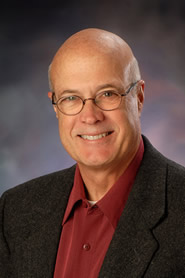DR. ALAN BATES
State Senator, District 3
Ashland, Jacksonville, Medford, Phoenix, Talent
Deputy Majority Leader
Co-chair, Human Services Joint Subcommittee
Member, Joint Ways & Means
News Release
February 11, 2013
CONTACT: Jeff Scroggin (503) 986-1703 or sen.alanbates@state.or.us
Bates stands up for Southern Oregon rivers and property owners
Legislation will protect region’s legacy of clean water and river recreation
SALEM—Today, Senator Alan Bates (D-Medford) joined a coalition of fishers, rafters, conservationists, and other river users to encourage the state to evaluate and potentially curb a new wave of suction-dredge mining on the Rogue, Chetco, and other area rivers and creeks.
“Southern Oregon is home to thousands of us who consider our peaceful, pristine rivers a legacy to pass on to the next generation,” said Bates. “The dramatic increase in this potentially harmful practice may have serious impacts on fish, recreational users, conservationists and affected property owners.”
Suction dredging, which is the practice of vacuuming up a river bed with a motorized raft to obtain gold, has become more prevalent over the past decade, growing from a few hundred permits a decade ago to nearly 2000 permits last year. “Clean water and healthy fish are cherished Oregon values, and I’m calling for hearings and a thoughtful discovery process to ensure protection for these threatened rivers and streams,” said Bates.
Joining Senator Bates was John Ward of Rogue Flyfishers, who spoke in support of a concept that would add new miles to the successful State Scenic Waterways program for the first time since 1988. “We must protect Southern Oregon and the rest of the state from new, destructive behaviors by expanding the State Scenic Waterways program. This move would be good for fishermen and for the recreational fishing industry,” said Ward.
Bates will continue to hear from local residents, including property owners, miners, local businesses, and he remains open-minded about possible solutions. “If it’s bad for our rivers and streams, then it should not be allowed in the most vulnerable and beautiful portions of those waters,” said Bates. “We must ensure that miners offset the costs to property owners and other river users – and we must ensure as little damage to our rivers as possible.”
Expansion of scenic waterways as proposed in SB 401 would increase protections from just one-third of 1 percent of Oregon’s rivers and streams to only one-half of 1 percent.
Senator Bates serves on the Senate Environment and Natural Resources Committee and is the Deputy Majority Whip.
###
Editors Note: Cascadia Wildlands is part of a broad coalition of conservation, environmental, angler, and recreationalist supporting this legislation.



Support SB 401!!
The article is wrong. The number of permits in 2010 was more like 647.
Also dredgers are not even in the water when Salmon reds are present or the spawning fish or the fry. This is by law that the mining community helped support, because they do care about the enviroment. While still supporting small business in Oregon.
John Ward of Rogue Flyfishers has science in hand that shows the large amounts of REDS killed by flyfishermen when wading during thier time of year.
Wrong move they are lying to you.
Suction dredging has been shown to destabilize spawning gravels which is a problem because them they are used and then fail. That impact has consequences regardless of time of year.
Bob Ferris
EB,
Who exactly is lying about what exactly?
Look at the science completely. The new tailing piles which you refer are used only when other more stabile are not available, such as when gravel becomes cemented by natural events. Then some Reds can be lost, but some are saved, any remaining reds then are able to live this is a plus. Because eggs laid on cemented gravels are a total lose.
Bates and his supporters of this bill. Look at his Scenic Water flyer it is miss quoted through out the 4 pages.
The word is actually redds not reds. And I have looked at the science. Thank you.
Bob Ferris
That's your final word. redds not reds.
EB,
I began my career as an ichthyologist and therefore am likely sensitive to folks professing authoritative knowledge about something and then spelling it incorrectly. It says two things. First that it is not a word that they use regularly otherwise spelling it correctly would be a matter of habitat. It also speaks to a lack of attention to detail which is problematic when dealing with complex systems with many variables. Both also indicate that these technical forays are taken from the statements of others rather than from personal expertise or experience.
Bob Ferris